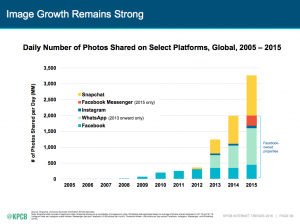— February 7, 2018

Ever worry that there’s something all the other agency owners know, but that no one has bothered to tell you? Something they’re doing that makes life easier, business more profitable, and projects more successful, that you just haven’t quite figured out yet?
Having worked with hundreds of agencies over the past five years, I’ve noticed (unsurprisingly) that the best performing agencies have a few things in common.
Namely, they focus on what’s most important.
Those priorities fit into three general pillars that support the agency and its owners: clients, team, and business strategy.
I was sharing some of the traits that I’ve noticed successful agencies seem to share with a colleague last November and she started jotting notes.
“Karl, this is really good stuff,” she told me. “You should write this up for your clients!”
And so this January I took some time to compile 9 themes that really seem to make a difference; if you’re doing these 9 things right, you’ll be better prepared for the future and better positioned to grow your agency.
But…. when I had it all on the page, it was a bit long.
So rather than put it all in a never-ending blog post, I’ve compiled it into a report — coming soon! While I finish polishing that up with my team, here’s a sneak peak at a few of the ideas I’ve included.
Consider these trends as you design your ideal agency for 2018 and beyond.
Be the Integrator for Client Initiatives
Create a way for clients to hire you to be their marketing integrator.
McKinsey notes that the digital future is all about integration—”from running uncoordinated efforts within siloes to launching an integrated operational-improvement program.”
Yet there’s likely a client-side gap. SoDA notes, “73% of marketers believe that their current organizational structure facilitates their ability to innovate while 48% of agency leaders see just the opposite.” Deloitte notes, “93% of [technology, media, and telecommunications] companies believe they need to redesign their organizations to succeed in the digital age, yet only 18% feel fully capable of redesigning their organizations for the future.”
Hire and Support the Right Managers
Once an agency grows beyond a few people, the owners no longer manage everyone. This means hiring others to create layers between owners and front-line employees. That’s often when the trouble starts.
Through my Culture Audit surveys, I’ve often traced high employee turnover to incompetent middle management. Frequently, the agency CEO is surprised to learn that his or her directors and managers are creating morale problems.
In 2018, the agencies that will wind up ahead will equip managers with the tools they need to manage people better.
Do More-Strategic Work
If you want to be seen as a strategy agency, consider how you can make yourself useful to clients in a more-strategic way. Strategy clients expect your team to think and speak “business.” You may eventually need to hire new people, but start by looking at strategy work you’ve already done—or could do with your existing team.
Going from Doer to Thinker requires a combination of shifts—including marketing case studies, an upgraded sales process, new hires, new clients, and more. But it starts with a mindset shift—that your agency’s job is to help clients meet their business goals.
Conclusion: Applying This at Your Agency
The key to designing the agency of the future is to understand the complex interplay of client relationships, teamwork, and business strategy—not just juggling, but knowing what to juggle, and how.
I hope my advice here will help you protect your agency against the inevitable changes over the next year—and better yet, give you the edge you need to get ahead. And stay tuned! I’ll be announcing the official release of the full trends report soon (sign up below to be one of the first to know when it’s released).
What trends are you seeing at your agency? Leave me a comment and let me know!
Business & Finance Articles on Business 2 Community
(48)
Report Post







